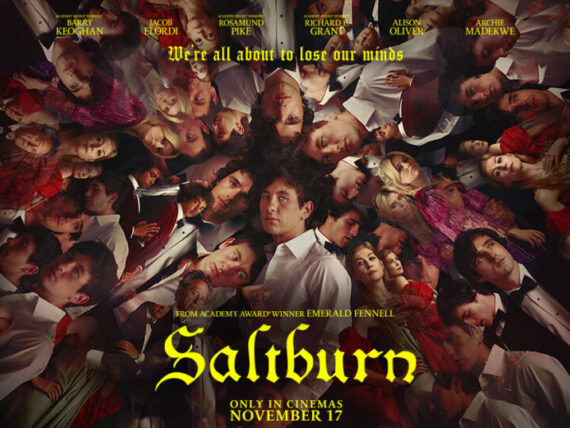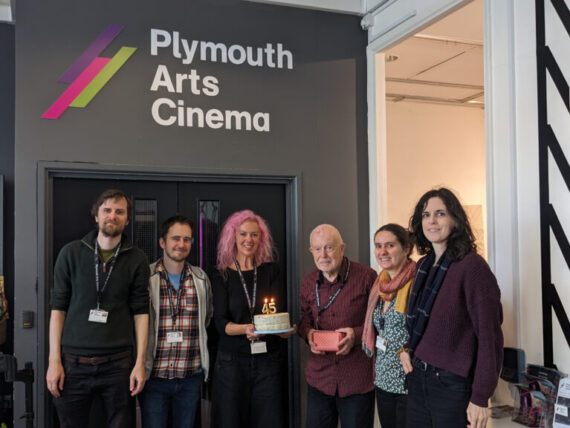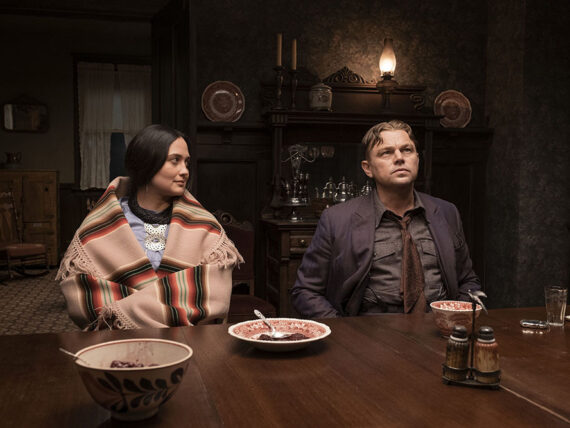On Saturday 30th April Plymouth Arts Cinema are teaming up with Plymouth After Dark to show a very special – one could even say extra-terrestrial – double bill of The Man Who Fell to Earth and a Ziggy Stardust and the Spiders from Mars concert.
by Ieuan Jones
This date marks the 50th anniversary of David Bowie playing Plymouth Guildhall during his classic glam phase as Ziggy Stardust, fronting his band the Spiders from Mars. So this presents an opportunity for Bowie fans of all ages – those that were there at the original show and those not yet even born – to come together and see for themselves a real slice of rock’n’roll legacy played out in real time.
The last date of Ziggy’s tour was filmed by world famous documentary-maker DA Pennebaker (famous for his documentaries on musicians including Bob Dylan). The show itself, from the Hammersmith Odeon in July 1973, does a great job of capturing exactly where Bowie was at at this point in time. He swings and swaggers between recent hits such as “Moonage Daydream” and “Time” (from the just-released “Aladdin Sane” album), to earlier numbers such as “Space Oddity” and “Wild-eyed Boy from Freecloud.” As always with Bowie, he is also eager to give credit where it’s due. The set-list is a dizzying collage of numerous influences as well, from Jacques Brel (my personal favourite), to the Stones, to the Velvet Underground, to Mott the Hoople, as well as featuring snippets from the soundtrack to Kubrick’s then-brand-new “A Clockwork Orange.”
But Pennebaker really caught lightning in a bottle at the show’s climax, where Bowie makes a surprise announcement – not only to the crowd but to most of his band as well. “Of all the shows on this tour, this particular show will remain with us the longest,” he muses, “because not only is it the last show of the tour, but it’s the last show that we’ll ever do.” He then counts the band into a rendition of “Rock’n’roll Suicide,” as nonchalantly as if he had just made an announcement of the bus times to get them all home. Supreme stuff and not to be missed.
What a difference two years makes.
After announcing the impromptu split of the Spiders from Mars (which many had actually assumed at the time to be a full-stop on Bowie’s whole career), his output spun away in various wild directions and he quickly found himself coming off the rails in his personal life, too. Alone and imprisoned by his fame and helplessly addicted to cocaine, by 1975 he seemed to be living as an actual alien, rather than playing the part of one, as he had done with Ziggy. Who better, then, to depict his state of estrangement than Nicolas Roeg, in an adaptation of Walter Tevis’s short story, “The Man Who Fell to Earth.”
Roeg had made a name for himself in a series of brilliant and dreamlike films, including his masterpiece “Don’t Look Now” (which had been released the same year as the concert at the Hammersmith Odeon). In “The Man Who Fell to Earth,” he was to push his vision even further, in a series of bizarre and perplexing sequences with Bowie caught right in the centre of it all. He plays Thomas Jerome Newton, an extra-terrestrial who has come to earth, notionally to find water for his ailing family back home on a distant planet. When others discover his plans, he ends up under the microscope as they try and figure him out – until he is eventually held hostage in an ivory tower of wealth and prestige.
The film itself seems less a linear story, such as a proto-“ET,” and more like a kaleidoscope, pulling in themes of fame, fortune, alienation, the growth of mass media and the space age. The idea of a character being leached by others for his talent and fortune, before being made a prisoner by them, would have made an obvious connection with Bowie at that point in his life. (He claimed at various times not to have remembered anything about the making of this film, although it obviously made enough of an impression on him to form the basis to two of his album sleeves and a stage musical he orchestrated at the end of his life.) None of his music appears on the soundtrack, so the experience is all about Bowie the actor, who arguably gives the performance of his career here, essentially because he was just playing himself.
This excellent double bill chimes perfectly with ideas that Plymouth Arts Cinema and Plymouth After Dark both promote – artistry and excellence from off the beaten track, which can be experienced by anyone.








Comments
No comment yet.